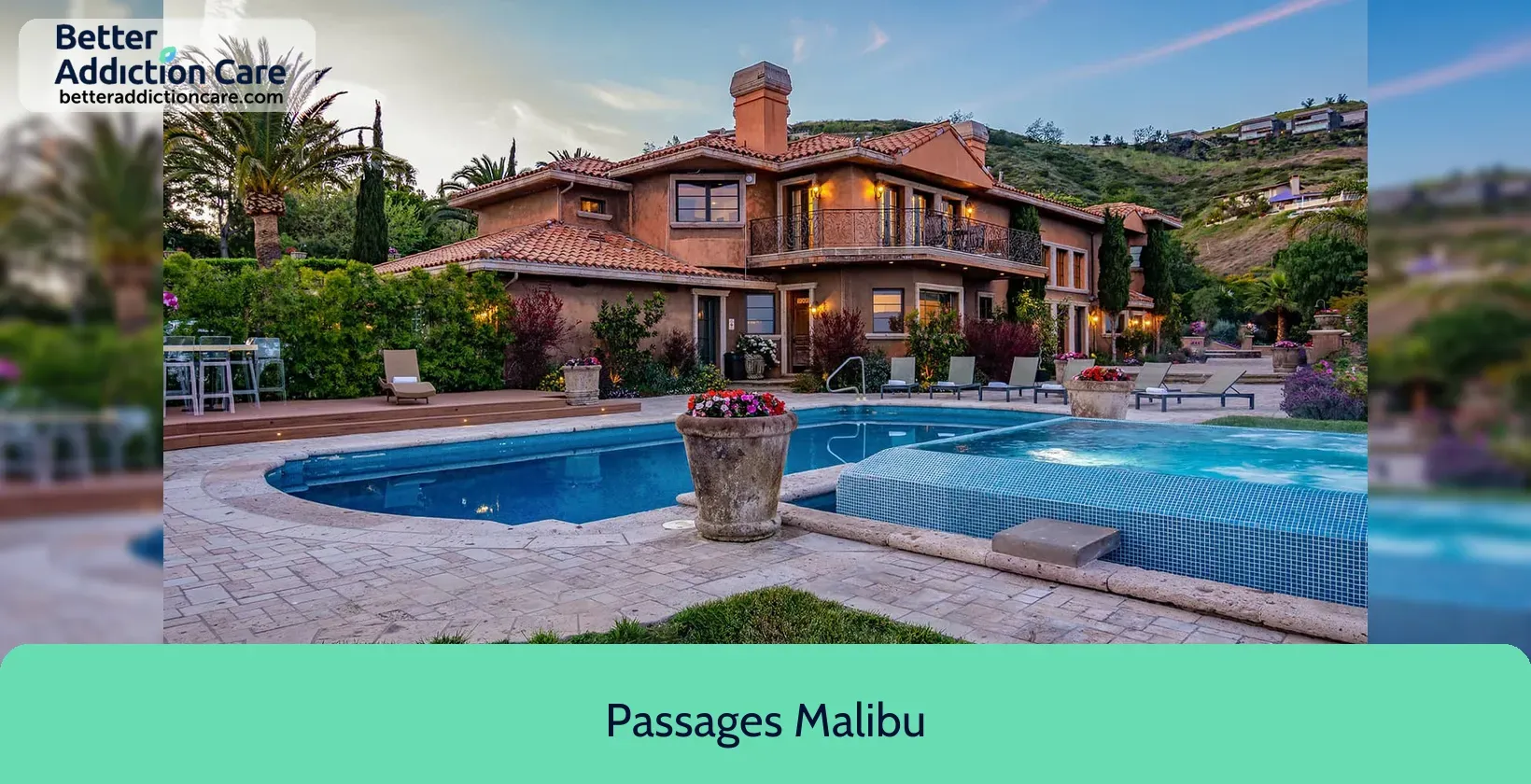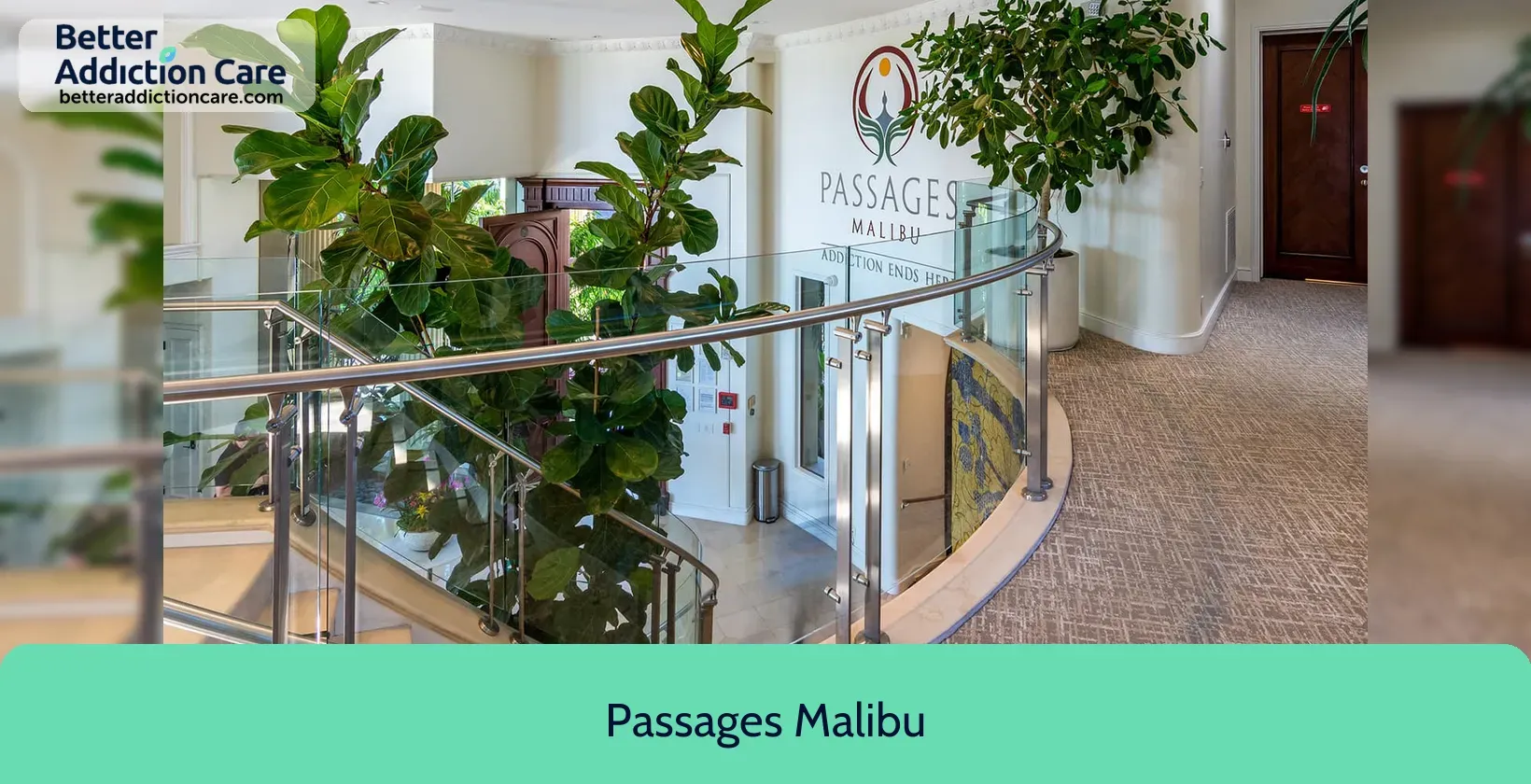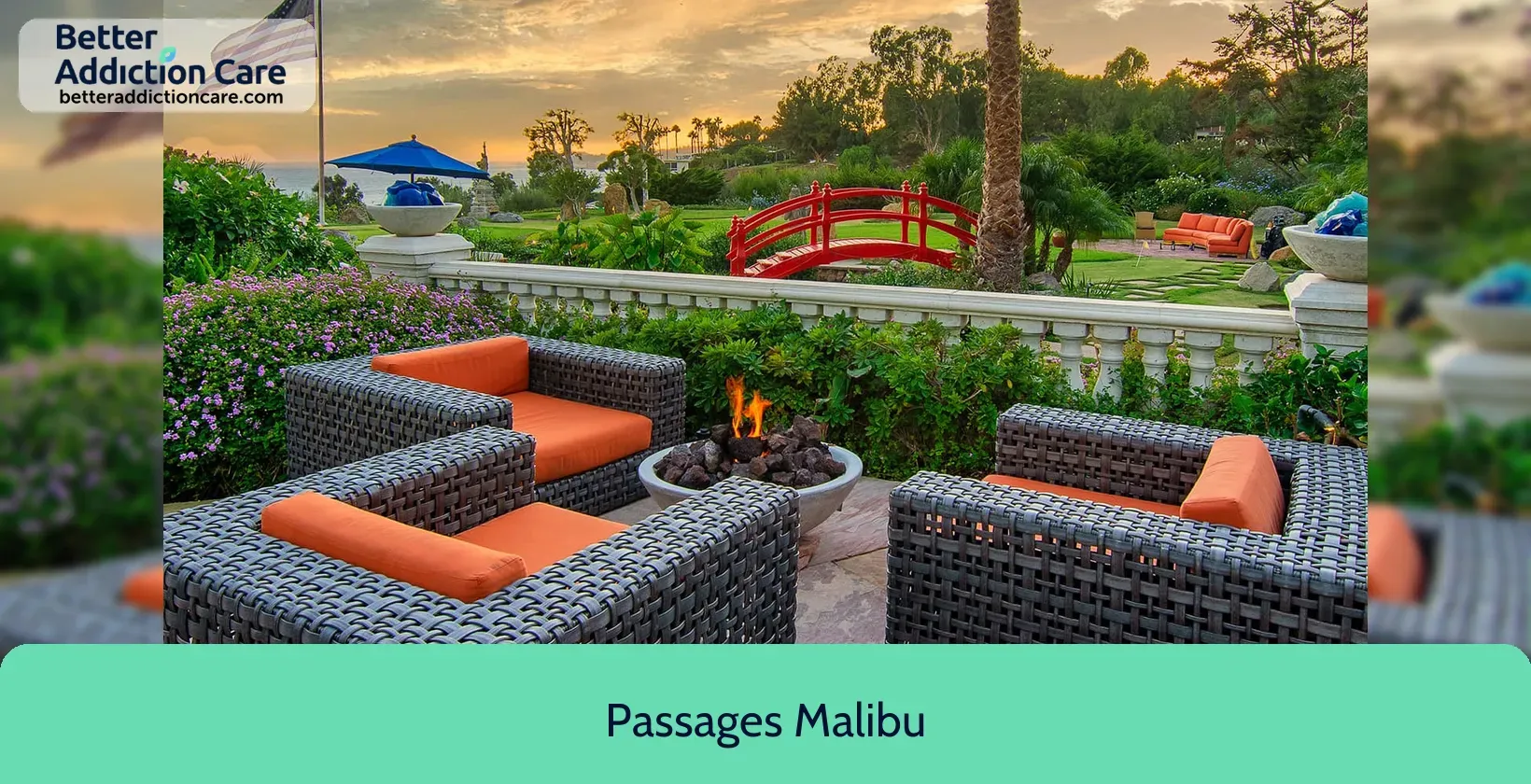Passages Malibu
Overview
Passages Malibu, a luxury rehabilitation facility situated in Malibu, California, was established in 2001. It is renowned for its comprehensive and holistic approach to the treatment of drug and alcohol addiction. Passages Malibu is distinguished by its personalized care and luxurious facilities, which are designed to accommodate the distinctive requirements of each client. The facility provides a variety of alternative and evidence-based therapies.
Primary Services and Programs
Passages Malibu provides a medically supervised detox program that is closely monitored by healthcare professionals to ensure the safety and comfort of clients. The duration of detoxification is dependent upon the individual's psychological and medical requirements. In addition to their holistic approach, the detox process may integrate therapeutic interventions, including massages and acupuncture, to mitigate discomfort and encourage relaxation.
Residential Program
The residential treatment program at Passages Malibu is highly individualized, offering personalized care in a non-12-step environment. The facility is renowned for providing 14 to 19 individual therapy sessions per week, guaranteeing that each client receives comprehensive support and attention. Therapies that are accessible include:
Hypnotherapy
Music Therapy
Meditation Equine Therapy
Yoga Tai Chi
Clients at Passages Malibu are permitted to utilize laptops and mobile phones during their stay, which enables them to maintain communication with personal and professional obligations, in contrast to numerous rehabilitation centers.
Outpatient Program
Passages Malibu provides an Intensive Outpatient Program (IOP) and a Partial Hospitalization Program (PHP) for individuals who may not require residential care or are transitioning out of it.
Intensive Outpatient Program (IOP): This program is conducted on three to five days per week, for a duration of three to four hours, and enables individuals to continue their recovery while balancing work or family responsibilities.
Partial Hospitalization Program (PHP): This program offers more intensive care, with clients attending treatment for 6 to 7 hours per day, five days a week.
Both programs provide clients with a diverse array of therapeutic modalities, such as hypnotherapy and marriage and family therapy, to address the emotional and relational aspects of addiction.
Passages Malibu also provides sober living residences for individuals who are transitioning back to independent living and are in need of additional structure and support. These residences offer a secure and nurturing atmosphere in which clients can stay focused on their recovery under the supervision of the Passages treatment team.
Alternative and Holistic Therapies Passages Malibu emphasizes the significance of healing the mind, body, and spirit by incorporating a diverse array of holistic therapies into its programs. Yoga, Tai Chi, Equine Therapy, Hypnotherapy, meditation, and acupuncture are among the alternative therapies that are available.
Quality and Accreditation
A prestigious recognition that demonstrates the facility's commitment to sustaining the highest standards of care and safety, Passages Malibu is accredited by The Joint Commission. This accreditation confirms that Passages Malibu adheres to the most effective addiction treatment practices and delivers care that meets the highest quality standards.
Passages Luxury and Comfort In addition to its reputation for therapeutic excellence, Malibu is also recognized for its luxurious setting.
Passages Malibu at a Glance
Payment Options
- Private health insurance
- Cash or self-payment
- Federal military insurance (e.g., TRICARE)
- Monthly
- Aetna
Assessments
- Comprehensive mental health assessment
- Comprehensive substance use assessment
Age Groups
- Adults
- Young adults
Operation
- Private for-profit organization
Highlights About Passages Malibu
7.27/10
With an overall rating of 7.27/10, this facility has following balanced range of services. Alcohol Rehabilitation: 8.00/10, Drug Rehab and Detox: 6.31/10, Insurance and Payments: 6.93/10, Treatment Options: 7.82/10.-
Alcohol Rehabilitation 8.00
-
Treatment Options 7.82
-
Insurance and Payments 6.93
-
Drug Rehab and Detox 6.31
Accreditations
The Joint Commission:

The Joint Commission accreditation for addiction and behavioral health is a prestigious recognition signifying a facility's commitment to delivering high-quality care and safety for individuals dealing with substance abuse and mental health issues. It involves rigorous evaluations and assessments, ensuring patients receive evidence-based treatment and exceptional care. This accreditation demonstrates a facility's dedication to continuous improvement and ethical practices, building trust among patients and healthcare professionals seeking top-tier addiction and behavioral health services.
Effective date: 05/06/2017
Registration: 488313
LegitScript:

Only after successfully completing a rigorous application process, programs and services achieve LegitScript certification. This process, which commenced in 2018, aims to qualify only reputable providers of mental health and co-occurring substance abuse treatment for inclusion on Google's network while ensuring compliance with HIPAA privacy laws.
Treatment At Passages Malibu
Treatment Conditions
- 24-Hour Clinical Care
- Mental health treatment
- Alcoholism
- Opioid Addiction
- Substance use treatment
Care Levels
- Luxury Treatment
- Detoxification
- Aftercare
- Hospital inpatient treatment
- Hospital inpatient/24-hour hospital inpatient
Treatment Modalities
- Family counseling
- Individual psychotherapy
- Group counseling
- Creative Arts Therapy
- Equine Therapy
Ancillary Services
Special Programs
- Clients who have experienced trauma
Get Help Now
Common Questions About Passages Malibu
Contact Information
Other Facilities in Malibu

7.05

6.96
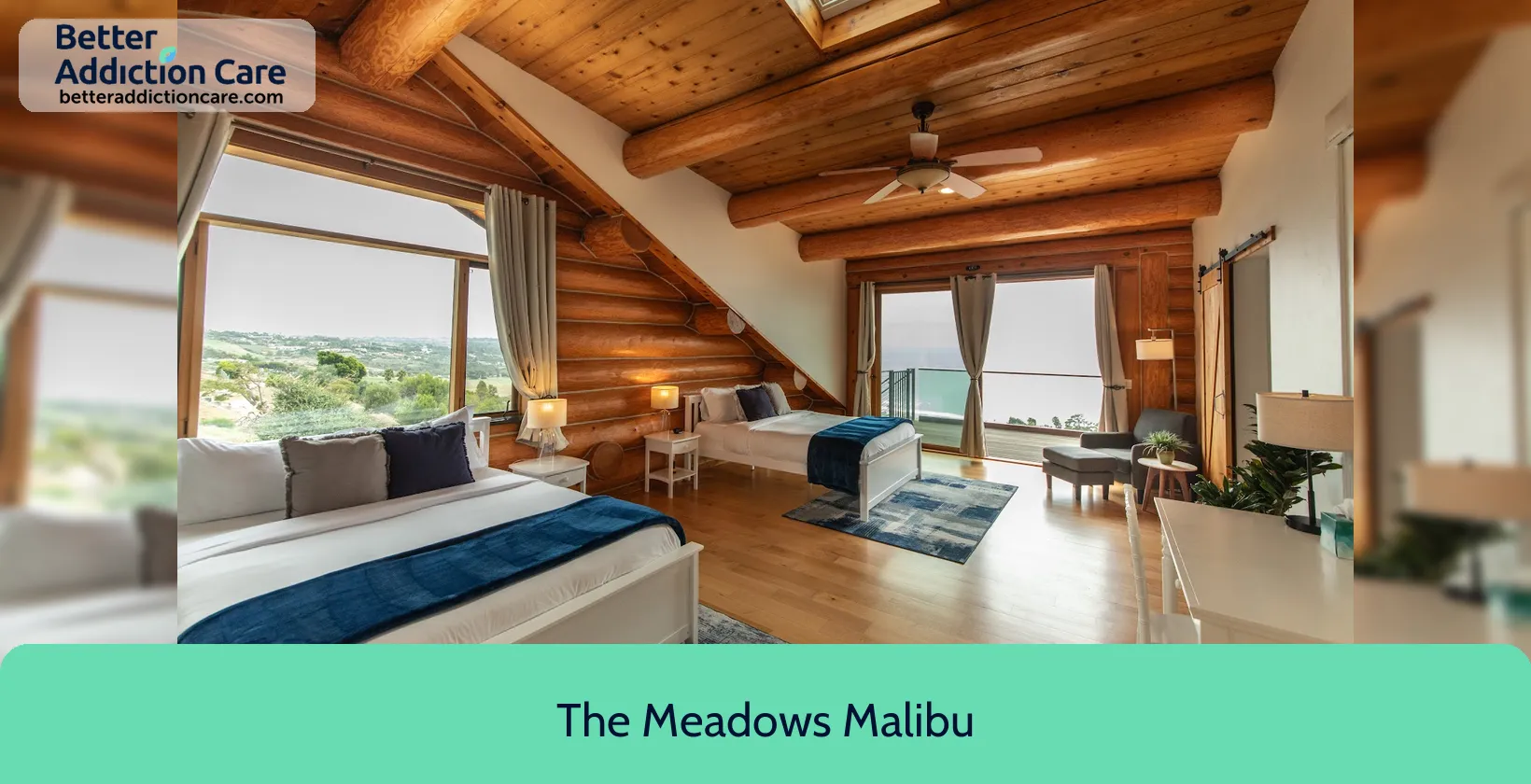
7.19

7.17
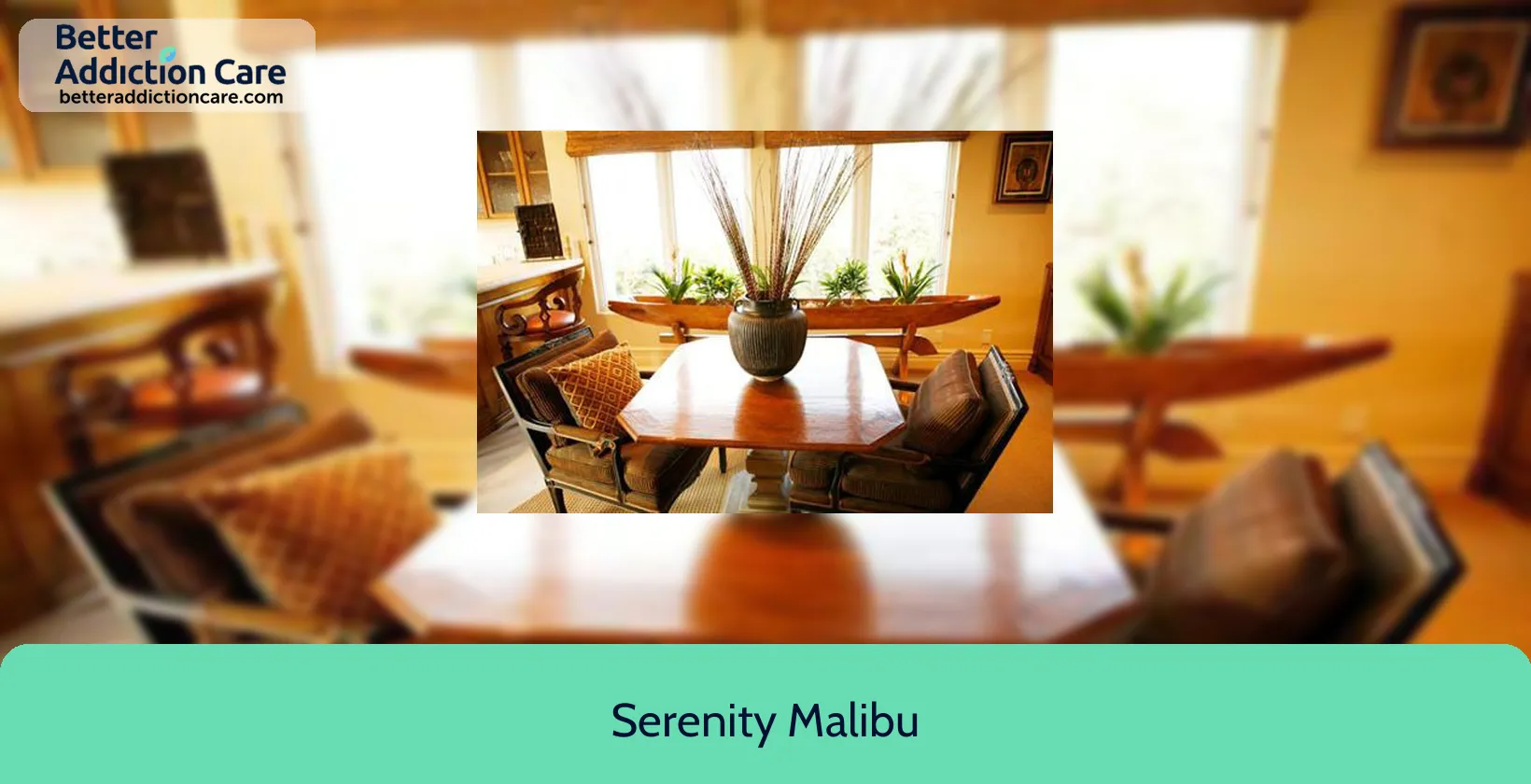
7.18

7.18

7.13

6.97
DISCLAIMER: The facility name, logo and brand are the property and registered trademarks of Oceanside Malibu Addiction Treatment Center, and are being used for identification and informational purposes only. Use of these names, logos and brands shall not imply endorsement. BetterAddictionCare.com is not affiliated with or sponsored by Oceanside Malibu Addiction Treatment Center.

